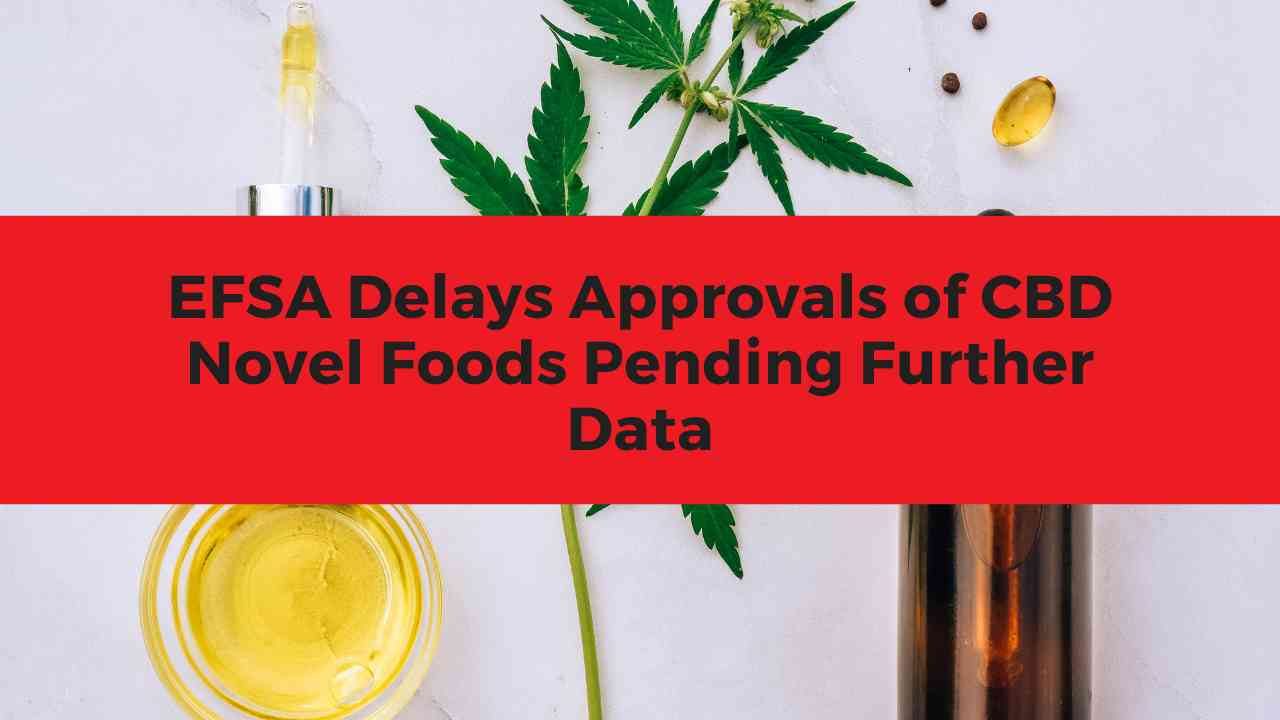The EU regulatory body for CBD foods – the EFSA – has halted CBD novel food applications until further data can be collected to establish their safety. After a review of 19 CBD novel food applications, the authority found significant data deficiencies relating to effects of CBD on the endocrine and reproductive system, among other things.
Key areas of concern
One of the major gaps in the submitted applications was a lack of information in key areas, such as the effects of CBD on ADME and various body systems. Additionally, there was a lack of human data relating to low-dose effects, endocrine, reproductive system, and potential CBD-medicine interactions. This lack of information made it difficult for EFSA to assess the safety of CBD novel food products.
Limitations in human and animal studies
A thorough examination of the available scientific literature was conducted, which included both animal and human studies focusing specifically on the data provided for pure CBD. However, several limitations were noted in these studies. Firstly, toxicology studies were performed using highly varied mixtures, with the content of other components and their identity rarely described. Additionally, many human studies involved patients who required the use of other medications, making it difficult to determine the effects of CBD alone.
Sign up to watch our comprehensive video guide on CBD regulation here
Data on Epidyolex
Most of the human data available refers to the efficacy of Epidyolex® at therapeutic doses, where adverse effects were sometimes observed. Despite these observations, it was not possible to identify a No Observed Adverse Effect Level (NOAEL) for CBD.
Gastrointestinal effects of CBD
The available data suggest that the main gastrointestinal effect of CBD consumption is diarrhoea. Yet, questions remain unanswered:
- Will this adverse reaction occur at lower doses of CBD?
- What exactly triggers this response?
- Will it worsen with prolonged usage or will it dissipate on its own?
Further research surrounding gastrointestinal effects of CBD is required.
Liver effects of CBD
The liver effects of CBD are unclear. There is a lack of human data on this topic. Also, a critical benchmark for determining liver toxicity – the No Observed Adverse Effect Level (NOAEL) – of elevated enzyme levels such as ALT, AST, ALP, GGT, and bilirubin, has not yet been established. The NOAEL – or No Observed Adverse Effect Level – is a key requirement in novel food application approval.
Finally, the potential impact of CBD-medicine interactions on liver function are yet to be established. These gaps in knowledge highlight the need for further research in this area to fully understand the liver effects of CBD.
Neurological & psychiatric effects of CBD
Several data gaps exist in our understanding of the neurological, psychiatric, and psychological effects of CBD. Areas where data is lacking include:
- Human data, specifically in healthy volunteers.
- Long-term effects of repeated exposure to CBD
- Dose-response relationships of CBD (no NOAEL has been established)
Learn more about CBD laws here
The endocrine system
The endocrine system is a group of glands that release hormones into the bloodstream to regulate various functions in the body relating to growth, metabolism and reproduction.
Lack of endocrine system data
The available evidence suggests that the endocrine system, specifically the thyroid hormone system and the hypothalamo-pituitary gonadal axis, may be affected by CBD. But significant gaps in our understanding highlight the need for further studies into the effects of CBD on the endocrine system.
Lack of reproductive system data
Our understanding of the impact of CBD on the reproductive system is limited:
- Very few animal studies
- No data on the effects of CBD on the human reproductive system
- Limited studies that focus on the effects of CBD in females
The lack of human and animal data across gastrointestinal, endocrine, reproductive systems, and CBD-drug interactions have made it difficult for EFSA to assess the safety of CBD novel food. The industry must generate the required toxicological data to progress their CBD novel food applications.
Read the press release by EFSA here.



Comments are closed here.